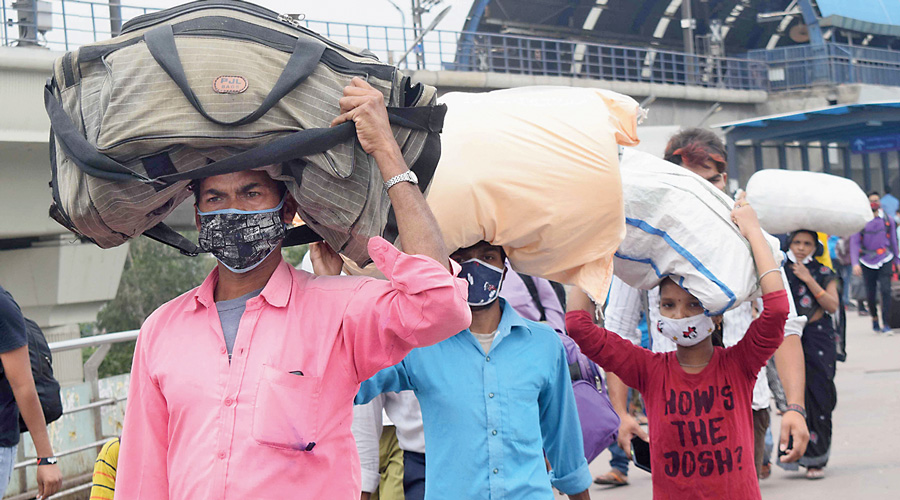Concerned over the rapid spread of Covid-19 in rural areas, the Jharkhand government has announced compulsory institutional quarantine of seven days for all migrants returning to the state.
Chief secretary Sukhdev Singh, in his order to all districts on Wednesday, stated that the quarantine rule would apply even if anyone tests negative through rapid antigen test (RAT) on arrival.
“All migrant workers returning to Jharkhand will be tested (RAT) on arrival. Those who test negative shall spend 7 days in institutional quarantine facilities to be set up at appropriate level by the respective district administration. They shall be tested again (RAT) before leaving for home. In the event of anyone testing positive, they will be handled as per the Covid-19 treatment protocol,” read the notification.
Officials said the compulsory quarantine will be in force till May 31 as the state government anticipates that more migrants would return in the next few weeks.
In the last few weeks, several migrant workers have come back to Jharkhand from Delhi, Kerala, Maharashtra and other Covid surge states. However, state government is still to release consolidated figures of migrants who have came so far. Sources said that there has been no tracking of such returnees this time.
Ironically, several reports also suggested laxity in testing at key transit points, like railway stations, airport, bus stands and check points, which is now leading to a surge in cases in several remote districts.
Chief minister Hemant Soren, during a meeting with all departments, on Tuesday conceded that the government was facing difficulty in ascertaining a clear cut trend of the virus spread in rural areaseven as he directed the authorities to step up vigil. “Every person dying in rural areas must be profiled properly and their family members must undergo Covid tests so that we can get actual figures. Unlike cities, we aren’t getting the actual impact of the virus in villages while many are reportedly dying or suffering with ailments,” he noted.











